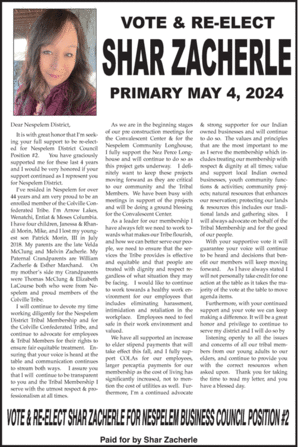Texas flush with transportation cash
Last updated 5/31/2017 at 10:25am
In the last decade, there has been a highway construction boom in Texas. On the other hand, lawmakers in Olympia still scramble to fund road maintenance.
Texas, a state with a population of 27 million, is flush with cash thanks partly to a 10-year voter approved initiative which will pump $2 billion a year into highways. Then recently, that state’s legislature added $9 billion to further help relieve traffic congestion.
“What’s Texas doing that we aren’t?” The answer is private-public partnerships.
Since 2011, the state’s transportation department (TxDOT) has been allowed to enter into agreements with the private sector to build and operate new tollways. The billions needed upfront comes from investors, not taxpayers.
There are 16 joint ventures underway where TxDOT works with companies to build, maintain and operate high tech highways. There are no toll booths. Cars, trucks and buses’ license plates are scanned and drivers receive a monthly bill. Companies recoup their costs by collecting the tolls.
Time is money. The Houston Chronicle reports that 170,000 vehicles travel on Interstate 69 through Houston each day. “The resulting gridlock translates to more than 21 million lost hours just in that area.”
TxDOT is pushing contractors to complete another four-lane tollway in the Houston metropolitan area. It is being built under a 52-year contract worth an estimated $2.1 billion.
There are some risks with these agreements.
In the Austin area, SH130 has a 41-mile section designed for an 85-mph speed limit which allows drivers to avoid the congestion between San Antonio and the state capitol. However, since its opening in October 2012, too many drivers chose to avoid the tolls.Consequently, the SH130 Concession Company, an independent company formed by Cintra and Zachry American Infrastructure, filed for bankruptcy last year and the company is working through chapter 11 protection.Â
Making SH130 work is important to Cintra, which in 2005 landed a contract to be a strategic partner with the state to design and plan the Trans-Texas Corridor (Laredo to Texarkana), the largest toll road development in our nation.
The agreements have their legislative critics, who are concerned by the depth of private sector involvement. Some balk because the negotiations are between TxDOT and private companies and basically cut lawmakers out. Others just recoil at tolling.
However, Texans are more willing to take risks when it comes to partnering if they have good roads and avoid congestion. That partly explains the state’s growth in jobs and economic output.
Texas, which traditionally relied on energy, survived the recent plunge in crude oil prices and is rapidly diversifying its economy. It is growing faster than the national average.
According to the Perryman Group, an economic research and analysis firm based in Waco, expansion in Texas is projected to outpace the nation over the next five years. Real gross product is forecast at a four-percent annual rate of expansion. An estimated 1.4 million net new jobs are projected for the Texas economy by 2021.
Perryman forecasts that all major industry groups are projected to expand through 2021, with the services, mining, and wholesale and retail trade segments likely to experience the largest growth in annual real gross product.
Texas leaders are investing in infrastructure as they prepare for a population to double by 2050. Alleviating congestion is critical to Texas’ future success.
Finally, it is important to remember that Texas and Washington are both leading manufacturers and exporters. Efficient and reliable road systems are critical for international trade.
Our states-elected officials need to look to Texas. Who knows; allowing private tollways may work here as well.





Reader Comments(0)